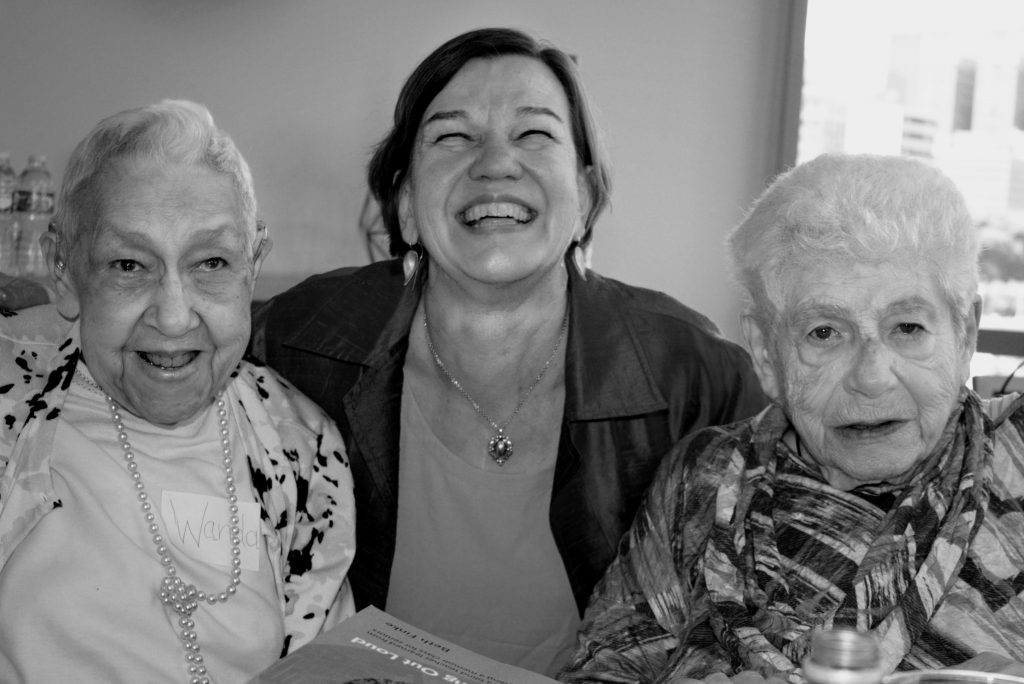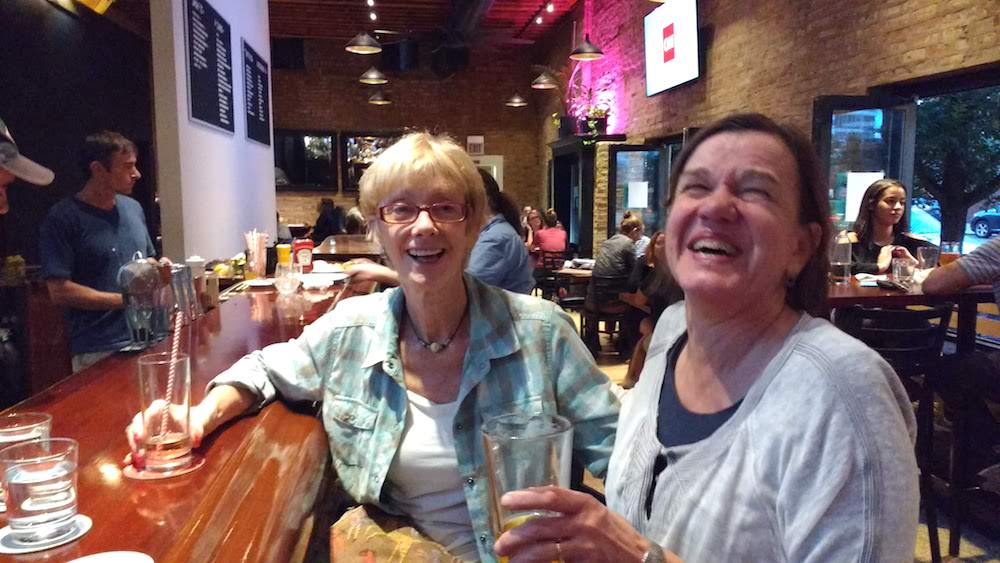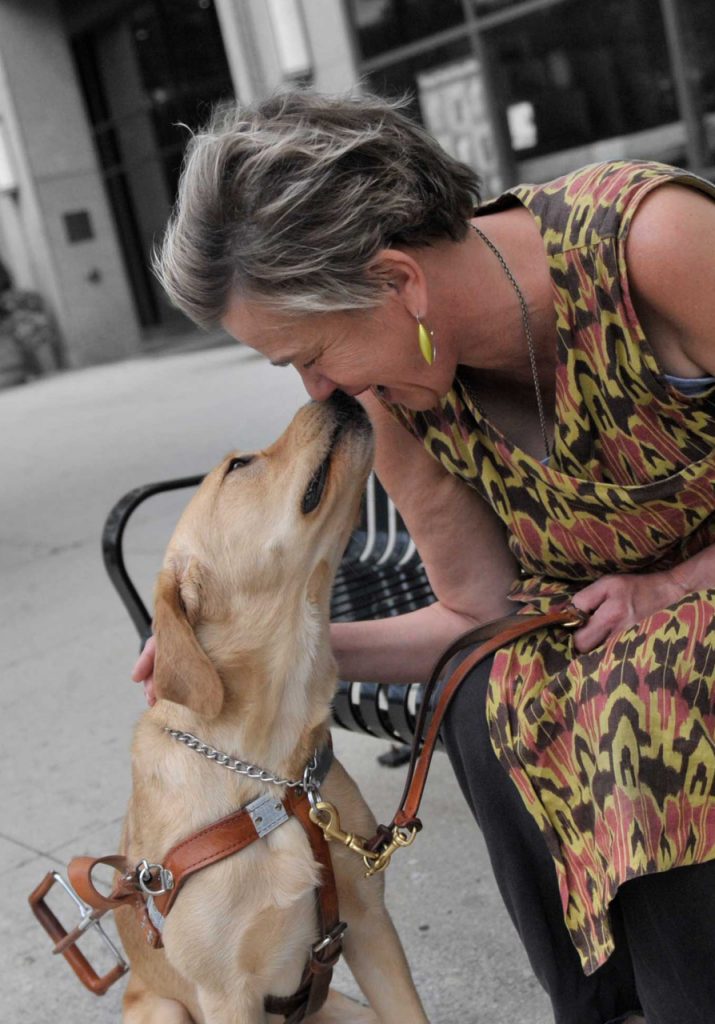We end our series that has shared tips from amazing authors of varying genres with a recommendation to try memoir writing. We asked Beth Finke, author, teacher and journalist to talk about the art that you can learn in class or practice on your own. Beth once shared her 500-word memoir on Oprah, telling how Beth, who is blind, posed nude for an art class. She tells us how memoir writing works and why you should try it:
“In a memoir class you are given a prompt, such as ‘hidden in the back of my drawer’ or ‘waking up in a strange room’ and are asked to describe it from your perspective in 500 words. It is not autobiography where you are writing about your entire life, but a vignette that you are willing to share with others. It is not journaling where you are probably writing just for yourself.
“It’s important to get your memories down on paper. If you are doing it on your own and are a little hesitant about getting started, begin by giving yourself short assignments. Pick a theme and limit the words. Small pieces are easier to take on because you might actually finish them.”

Writing Out Loud.
A featured NPR commentator, Beth teaches six weekly memoir writing classes, including several for the City of Chicago’s Department of Family and Support Services. She invited us to sit in on a memoir master class presented by The Village Chicago, the innovative non-profit which navigates the new longevity and offers services and programs for the 50 plus community. There is an explosion of interest in the topic so more teachers are needed. Beth and service dog Whitney sit front and center and she begins by asking the student’s favorite author.
“At the start of each class students draw a scrabble letter to see who goes first, and each presentation is about six minutes. Feedback is almost always positive and encouraging.”
Afterwards she explains why these classes can be so important.
“Writing and thinking of the right word to use can help your brain. It’s like doing a crossword puzzle, but better. If you can’t come up with the right word, it’s ok to look it up.
“Lots of people who are getting older feel isolated, and that no one is listening to them. This is a space once a week when your thoughts are heard. Another benefit is that if a student can’t remember something about an incident, she might pick up the phone and call a brother and say that she is in a memoir class and needs a question answered. All of a sudden the siblings are talking once a week.”
Beth, who lives with her husband Michael Knezovich in Printers Row, navigates the city with Whitney at her side. The mother of a grown son Gus, Beth lost her sight as an adult following many operations to save it. She has written:
“Here’s a dirty little secret—it takes longer than my sighted peers to get my work done. I’m not supposed to admit this. Thing is, 75 percent of people who are blind like me are unemployed. And most of us would like to work. We’re supposed to say we’re just like everyone else so employees won’t be afraid to hire us.
“But we are not like everyone else. Braille takes longer to read than print. Searching a website by ear with a talking computer takes up more time than scanning a screen. Transcribing taped interviews takes much longer than just jotting notes the way sighted reporters do. So I get up early and work extra hours to get my work in on time. We blind folks get our work done, we just work longer and harder to get there. Time is precious to us, and we don’t like to waste it.”
In her latest book, Writing Out Loud, Beth shares not only her own memoirs but also those of her students.
“Writing my first book, “Long Time, No See” gave me permission to work through losing my sight. I came to realize that going blind was like going through a second adolescence. I felt uncertain of myself. I wanted to be accepted. I wanted people to like me. And I was afraid I’d never fit in. There was a lot to overcome, but internally and externally. Having senior writers in my class is a gift. My second book, “Writing Out Loud” is about what all of us can learn—when we listen.”

Beth Finke (center) with two of her senior students. Photo credit: Darlene Schweitzer
John Craib-Cox, a Village member whose work is published in Writing Out Loud, talks about being Beth’s student:
“Beth Finke’s Memoir Writing Group challenges you to organize your thoughts and then write them using 500 words or less. This is challenging in itself but you then have to read aloud this before the Memoir Group and Beth. The audience is accepting, but judiciously critical, which makes you work to the best of your abilities. Beth, after the groups’ critique, provides selective praise and helpful suggestions for improvement. It inspires regular writing to the best of your abilities. Beth, the writing process, and fellow Memoir Group writers are all terrific.”
Several years ago, a commissioner from Mayor Daley’s Department on Aging first invited Beth to lead memoir-writing classes for senior citizens. Now her calendar is filled with classes, writing a popular blog, talks to businesses across the country about workers with disabilities and to other groups as well as radio interviews. She describes a recent one on her blog:

Beth interviewing Nancy Faust, White Sox organist.
“A week ago I was in NPR’s StoryCorps booth in Chicago interviewing renowned retired White Sox baseball organist Nancy Faust. A producer at StoryCorps Headquarters in New York City had been hounding Nancy for months, urging her to get in a StoryCorps booth to record her story.
“StoryCorps is a non-profit that was set up to ‘record, share, and preserve the stories of our lives’, and Nancy had no idea why a radio producer in New York City would take such interest in a Chicago baseball organist. ‘My life story is not that interesting,’ she told me. ‘What would I say?’ The NYC producers kept hounding her, though, and she finally told them she’d to it ‘as long as my friend Beth Finke can be the one doing the interview’.”
Beth and Whitney are often invited to schools across the country to talk about her children’s book, Hanni and Beth: Safe and Sound, about adventures with her first service dog. A writing exercise she shares with children works for memoir writers as well:
“We all take a minute to write a few sentences that describe our lives, then we read our sentences out loud. We go through an editing process to strike through words we’ve written and cut our stories down to six words, read them aloud again and then cut to three words, then one, which is their writing prompt for the day. The words they chose were terrific—twin, grandma, angry and awesome being among them.”

Beth with her dog Whitney. Photo credit: Bill Healy
Dianne Campbell, Founding Executive Director of The Village Chicago describes the impact of Beth’s classes:
“Beth’s three memoir classes are among our most popular offerings. I’m impressed by Beth’s skill at nurturing our members to be compelling storytellers and by the quality of writing coming out of the classes. I love what our members are learning about themselves and by the community of support that the classes foster. Beth will join me in October at the national gathering of villages to present her new “train the trainer” toolkit that The Village Chicago is currently piloting — and it’s exciting to know that Beth’s work in Chicago can be scaled to seed her winning memoir class model in communities across the country.”
To Beth, nothing could be better than leading a memoir class:
“I have the best job in Chicago. Four times a week an adorable dog leads me to a quiet room and falls asleep at my feet for an hour or so while I listen to older adults read the stories of their lives.”
******
To learn more about Beth, visit her blog at bethfinke.com







